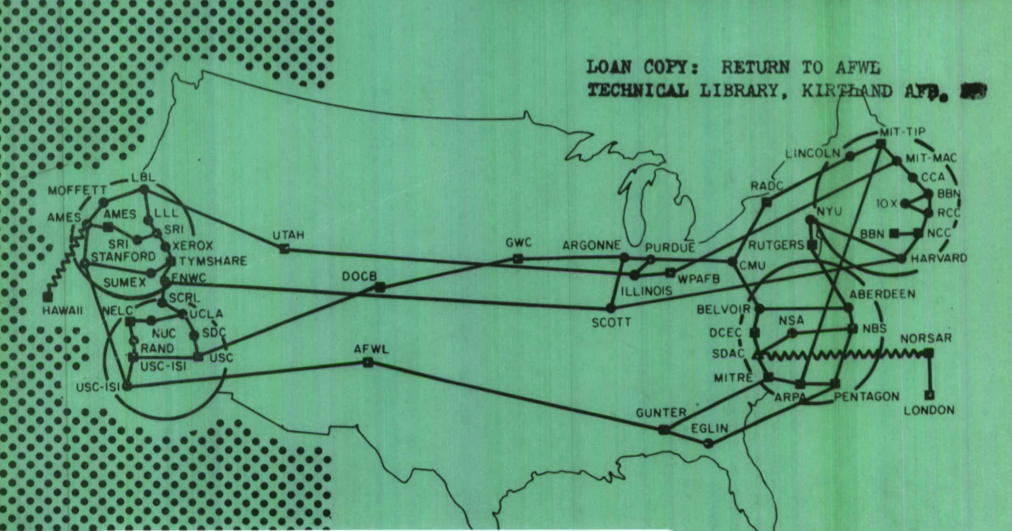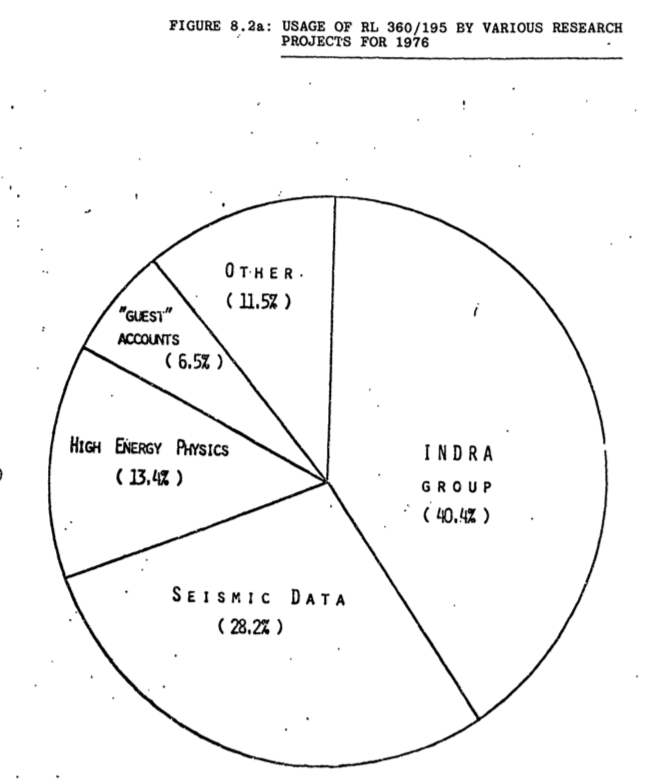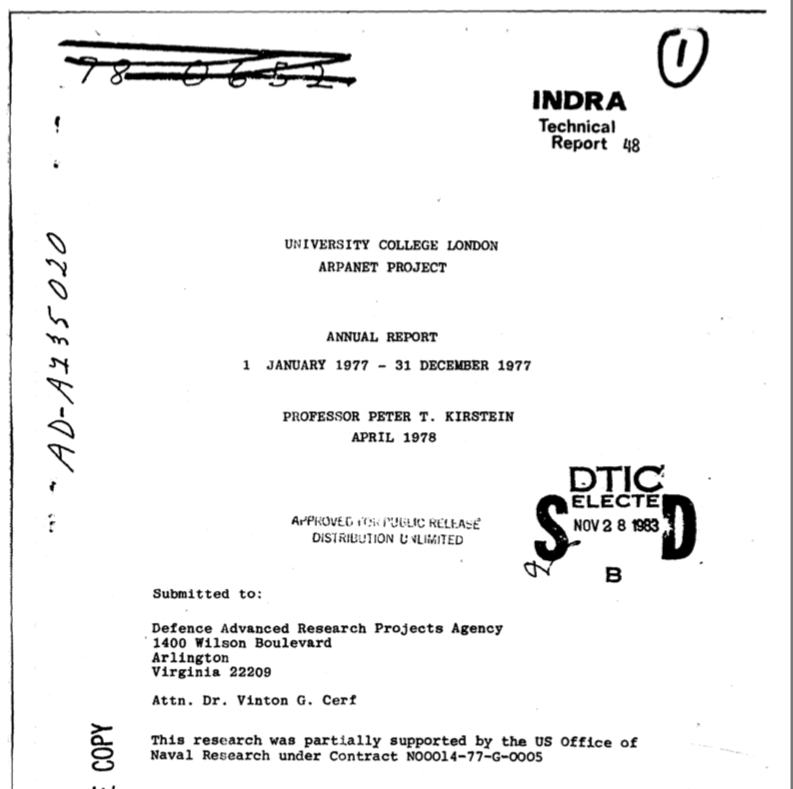No, you're wrong. The internet was always intended to spy on us.

The Spectator just ran a review of Surveillance Valley that tried to debunk my book as conspiratorial and to show, contra to my thesis, that: No…“The internet was never intended to spy on us.”
The funny thing is that very expert testimony the reviewer tries to use against me, on closer examination, actually proves me more right than ever. Yes, more right. Hard to believe that it’s possible to be even more right than I was before. But such is the nature of this bungled review.
To debunk my claims about the Internet being a surveillance technology from the very beginning, the reviewer — journalist Jamie Bartlett, who’s written a number of books about the Internet and even hosted a decent BBC program about nutty techno-libertarians — decided to appeal to authority. He phoned a guy who had worked on an important ARPANET node in the 1970s at the University College, London. This was one of first two foreign connections to the ARPANET, the Pentagon network that was later privatized and grew into the global Internet that we all use today.
This expert, a networking engineer who indeed "was there" — professor Peter Kirstein — told Bartlett in very definite terms: Nope, Yasha's wrong. There was no military surveillance happening on the early Internet. None at all. “Unless everyone’s been lying to me for 40 years, the ARPANET was not intended as, or used as, a surveillance system,” he said.
With that established from an expert — a person known in some rarified circles as "the father of the European Internet" — Bartlett then moves to chide my paranoid leftism and scolds my inability to trust in the noble intentions of the Internet’s Founding Fathers: “There’s a softly conspiratorial view of the world which sees anything funded by government as corrupt or menacing," he explains. "Throughout, Levine has too much faith in the US government’s power of foresight, and too little in engineers such as Vint Cerf."
Yes, why can't I just implicitly trust the military contractors who built the Internet for the Pentagon? Why can't I take them at their word? What's wrong with me?
Actually, professor Kirstein is the perfect example of why the self-guided history of the Internet offered by "experts" who "were there" and "know best" should always be checked and double checked.
See, what professor Kirstein didn't tell Bartlett — and what Bartlett himself clearly does not know anything about — is that the entire reason the UK ARPANET node existed back then was because it was used as a data link for a covert anti-Soviet surveillance program — a program that attempted to detect underground Soviet nuke tests by monitoring seismic vibrations from Norway and other spots around the world, and then sent that data to America for processing and analysis.
This ARPANET-connected surveillance program was designed to look like an academic earthquake monitoring service — a cover that masked its intelligence purpose. Naturally Vint Cerf, the Founding Father of the Internet/ARPANET contractor who Bartlett says I'm supposed to implicitly trust, was involved with this nuke surveillance project from the very start. (As I explain in my book, Cerf had done a lot of classified work for the military. Yet today he enjoys wide acclaim as visionary techno-radical, all while collecting fat paychecks as a celebrity lobbyist for Google. His official title: "Chief Internet Evangelist for Google.")

Matt Novak dug into this ARPANET Soviet nuke surveillance program and here's what he found:
A Norwegian military research agency partnered with ARPA for an expansive seismic monitoring program called NORSAR, which also included monitoring stations in Alaska and Montana. As Olav Riste explains in his 2014 book on the history of the Norwegian intelligence community, there were 22 NORSAR stations set up by ARPA and the Norwegian Defence Research Establishment (roughly Norway’s equivalent to DARPA) in the southern and eastern parts of Norway. By June of 1973 all of those stations were feeding information to the American intelligence community through a satellite link to the ARPANET.
As researcher Olav Njolstad wrote in his 2007 paper Atomic Intelligence in Norway During the Cold War, NORSAR was supposed to look like a non-military earthquake monitoring service, which it also was. But, of course, its primary mission was firmly rooted in intelligence gathering.
"Despite its civilian clothing, NORSAR was a child of US-Norwegian military intelligence cooperation. Indeed, the director of the Norwegian Defence Research Establishment supervised its construction in person, and the advanced computer centre that would provide the realtime link to ARPANET was placed just outside the barbed wire fences of his institute."
This data flow from this surveillance array in Norway changed a few times, and the details are somewhat convoluted. But ultimately the UK ARPANET node that Professor Kirstein was in charge of was part of this program, and a big part of what it did was forward seismic surveillance data to American intelligence agencies.
Here's a nice chart that Kirstein provided to ARPA of computer usage at his ARPANET node in a 1978 status report (addressed to Vint Cerf):


And as it turns out, Kirstein himself admitted in a 2015 oral history that his work with ARPA was a part of a larger project to spy on Soviet nuclear tests:
"Back when I started ARPANET work at the Institute of Computer Science in London — this was somewhere around 1970/71 — I tried to get the Science Research Council to back what I was doing, because DARPA [the US military’s research division] had a link that they were putting into Norway for seismic monitoring for their nuclear monitoring research operation...I knew these people very well, and I was offered the link."
Ooops. Looks like prof Kirstein of 1978/2015 disagrees with prof Kirstein of 2018. Turns out that there was surveillance happening on the ARPANET. Yasha's been right all along! Too bad he didn't let Jamie Bartlett in on the secret.
The most important thing here, though, is that this bungled review ended up proving Surveillance Valley even more right:
Whatever non-military academic and research work that happened on the network — and there obviously was some — the ARPANET was created and used as surveillance technology from the very beginning. And no amount of clinging to the free and open origin myths of the Internet will change that.
—Yasha Levine